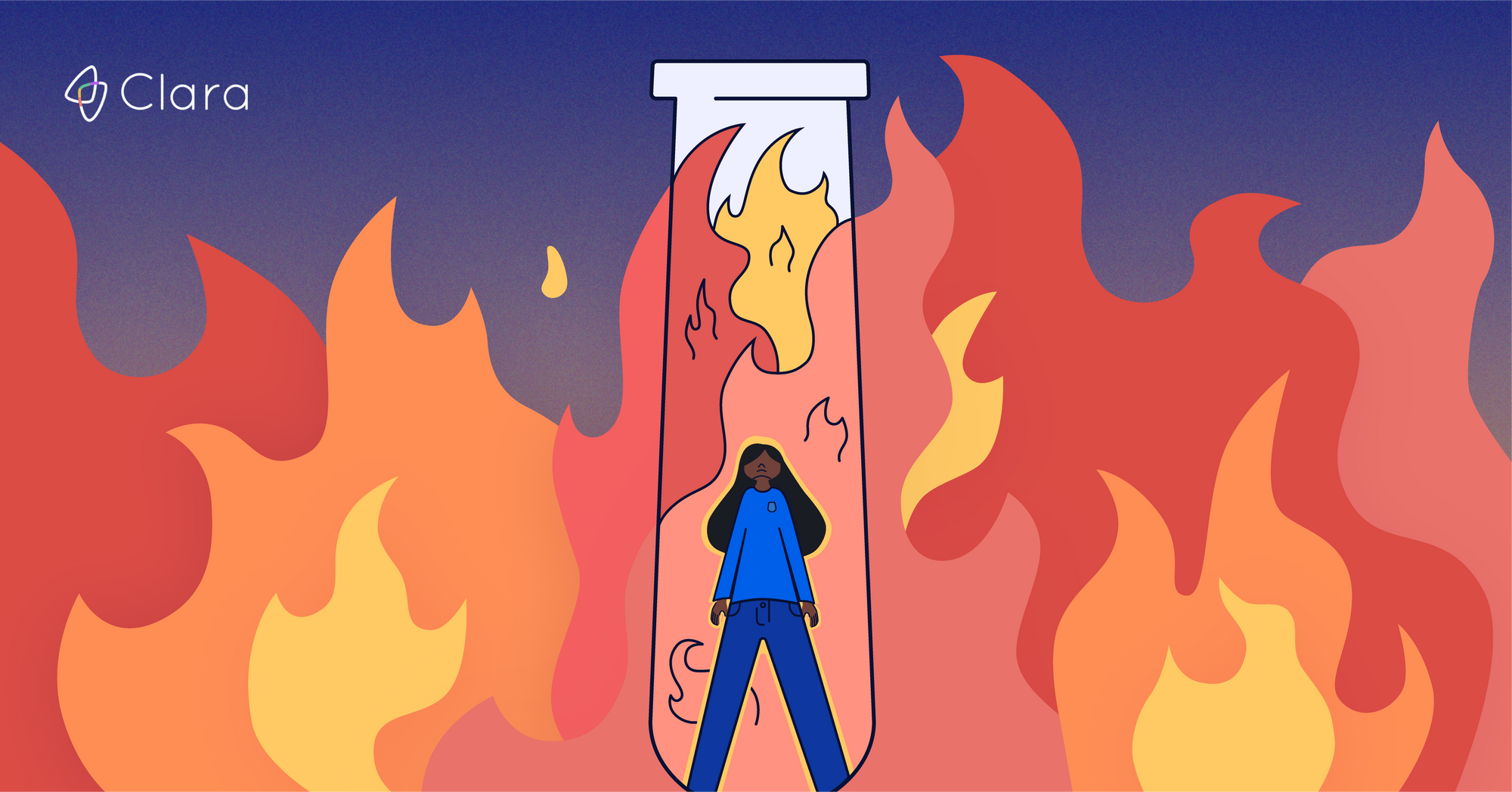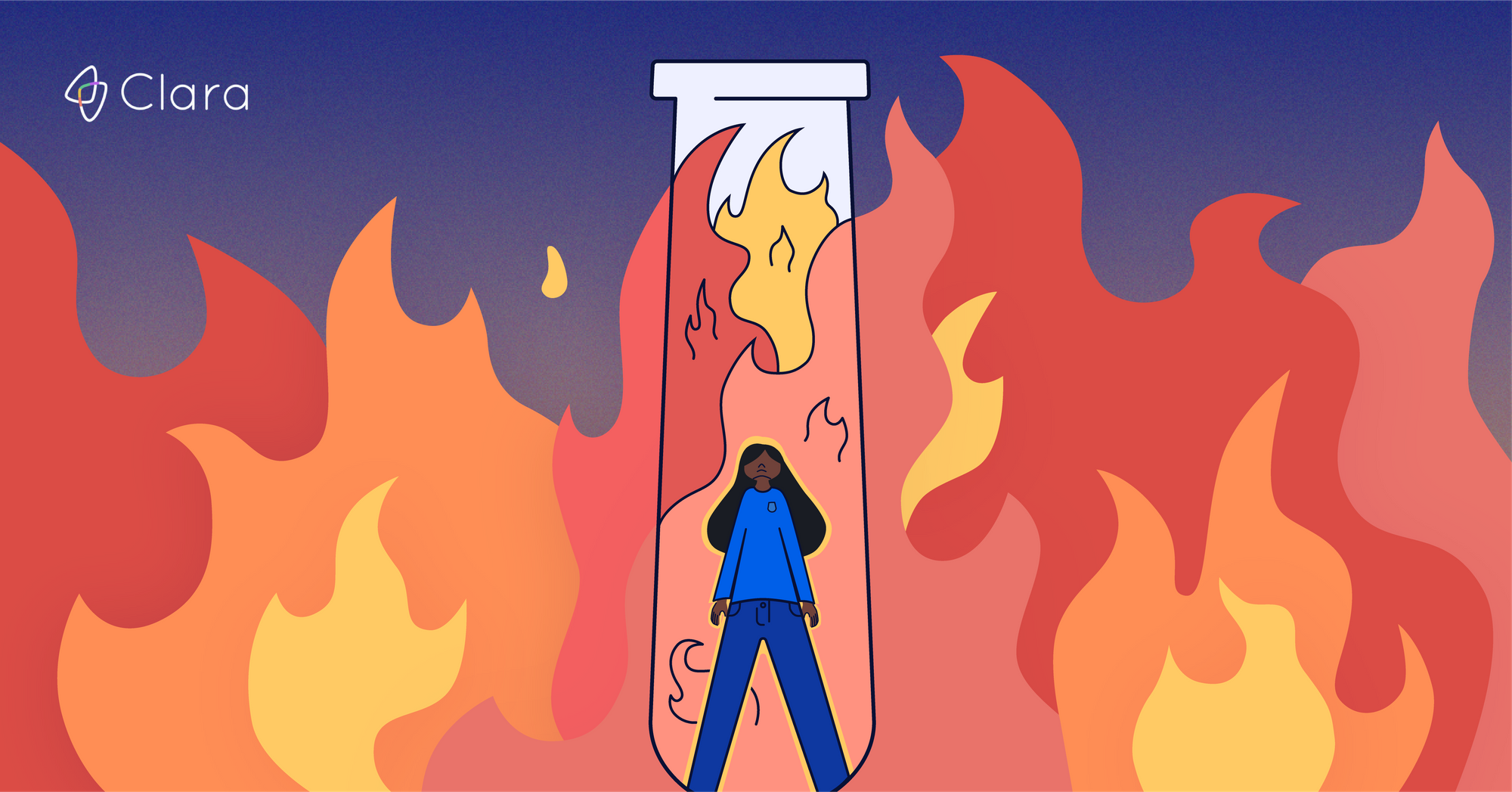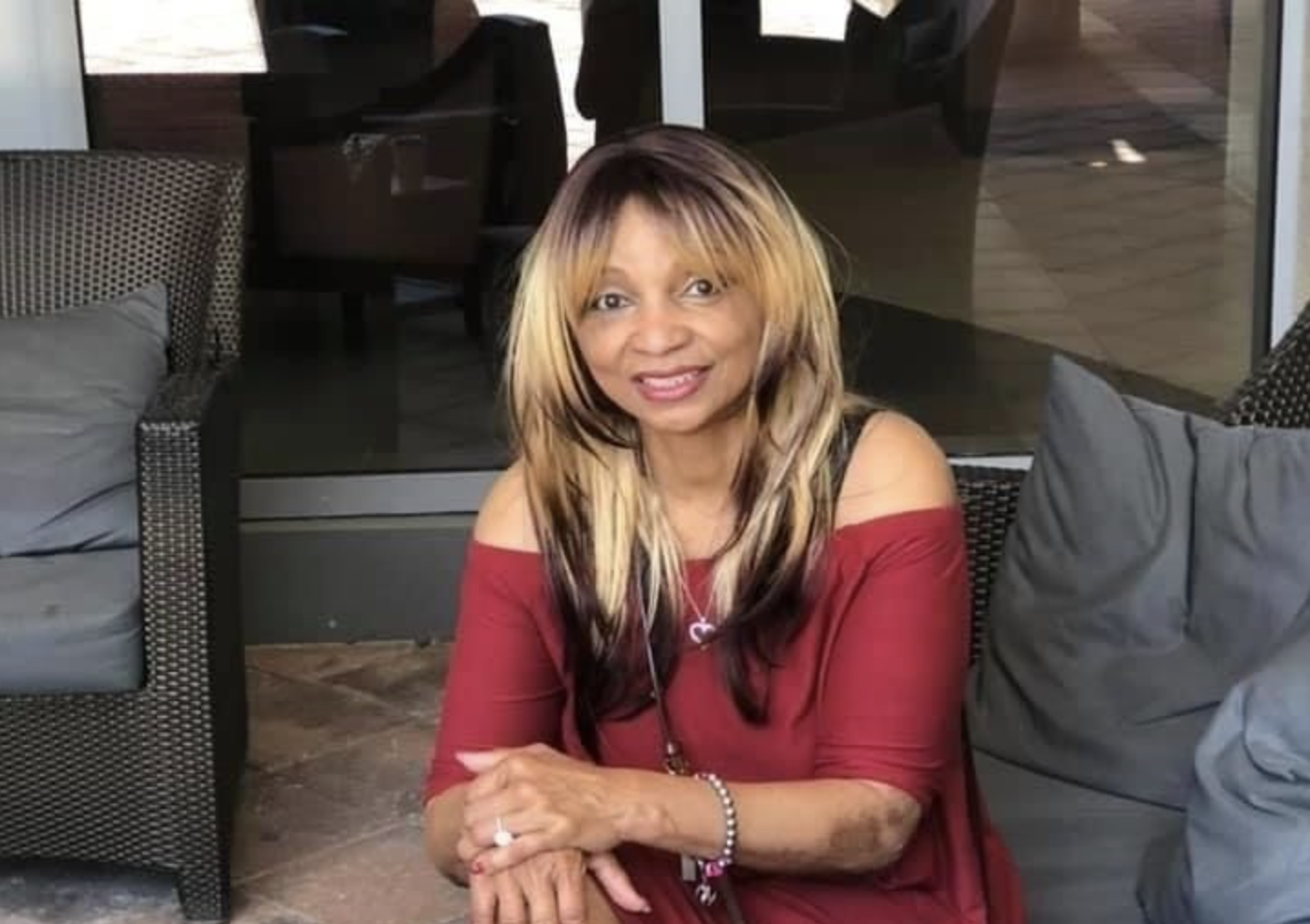This is Patients Have Power, where we talk to kick-ass patients about their empowering journeys. I'm Lilly Stairs, your host and Head of Patient Advocacy at Clara Health.
Today, we're talking to Amanda Lustig, a fabulous patient advocate living with Crohn's Disease, owning her journey, and supporting other patients in the process. Amanda is the Vice President of the Crohn's and Colitis Foundation of New England's Young Professional Group, and works full-time in the healthcare industry right here in Boston.
Below is a transcript of the episode for your reading pleasure!

Lilly Stairs: Hello, everyone. Today, with us we have Amanda Lustig, which by the way, I'm going to stop there for a second, because you told me that your last name means something.
Amanda Lustig: Sure does! Fun fact - it means funny, or happy, in German. Google it. I have a Christmas song.
Lilly Stairs: I love it.
Amanda Lustig: It's a good fun fact.
Lilly Stairs: I like it. Good for everyone to know. Amanda is a Crohn's Disease patient living in Boston and just thriving. She is full of life, and so much fun, and an incredible advocate. Does a lot of work locally with the Crohn's and Colitis Foundation (we'll definitely chat with her about that).
I'd love for our listeners to hear about your experience and your journey as a patient. How old are you now?
Amanda Lustig: Ooh, have to? Okay, well ...

Lilly Stairs: Well, you're very young. It's not like you're a 50 year old woman.
Amanda Lustig: I will be 83.
...
I'm 28.
Lilly Stairs: Lovely. When were you diagnosed?
Amanda Lustig: I was 19. Nope, that's not true; 21
Lilly Stairs: I was gonna say, I was diagnosed at 19.
Amanda Lustig: Nope, 20.
Lilly Stairs: Can you walk through how the diagnosis happened and what roads led to that?
Amanda Lustig: Sure. I have had GI issues my whole life. When I was in college, I started having some of the typical Crohn's systems that really mimic IBS.
I had two or three GI doctors say, "Oh, it's just IBS. Limit gassy food. Don't drink carbonated soda. Don't suck on hard candies," and weird dietary restrictions like that.

Amanda Lustig: My symptoms were getting worse, nothing was getting better. I wasn't getting the answers that I wanted.
I finally found a gastroenterologist in Pittsburgh; it was probably like May, I was getting ready to go home. He said, "I think it's IBS, but if anything gets worse you need to see the doctor back in Boston."
Over that summer, I developed the Crohn's arthritis.
Lilly Stairs: Which is no fun.
Amanda Lustig: Which is super no fun, especially when you're 20 years old and not used to having arthritis, which I would argue are most 20 year olds.
I had canker sores all over my mouth. I was vomiting, because the pain was so bad. Zero appetite. All I could eat were oyster crackers. To this day, I can't eat oyster crackers the same way.
Lilly Stairs: Yeah.
Amanda Lustig: Just classic, oyster crackers. That's all I would eat. I was up at three on one night after being told by countless gastroenterologist, "No, you're just IBS. You're just gonna have to limit your diet. You'll be fine."
I was up, because I couldn't sleep. I actually saw an ad on television for the Digestive Disease Center, the DDC. That's where I was like, "You know what? I'm calling, because I have nowhere else to go. I need someone else to give me an answer."
That's where I met my gastroenterologist, Dr. Wong.
Lilly Stairs: Oh, right, and you go to Boston Medical Center?
Amanda Lustig: I did. I had to change, because ... very sad, but there was a method to the madness. I needed a new job.
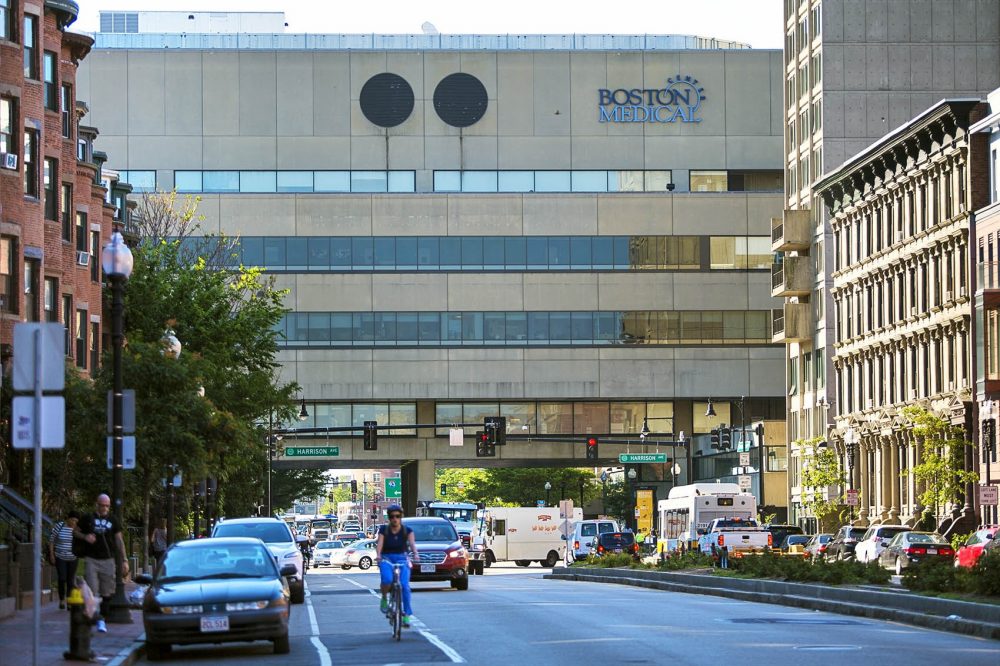
Amanda Lustig: Dr. Wong listened to me.
He was like, "Something's not adding up. You were a perfectly healthy human and then all of a sudden you are bedridden, and you can't walk, and you have so many weird symptoms. There's just ... something's not right."
In the meantime, of course, I went to an ear, nose, and throat doctor, and they said I had Herpes A. I was like, "Well, that's not great." Then, they thought I had Lyme's Disease.
My differential was a mile long, and very scary, and they were like, "It could be Lupus." I was like, "That's what Dr. House says everyone has and then they don't, so please don't let it be Lupus."
Lilly Stairs: Isn't it crazy how so many patients go through all of this? They get told they have all these different autoimmune diseases before they get the right diagnosis.
Amanda Lustig: Oh, yeah. It takes forever. Meanwhile, I was getting sicker, and more frustrated, and my parents were getting more frustrated, and my brother was just getting frustrated, because he hated listening to me bitch and moan all the time. Everyone was frustrated. My doctor said, "I want to do a colonoscopy."
Which at age 20 is different.
Lilly Stairs: Oh, sure. I don't think anyone at any age likes it, but probably not a rated top thing to do at age 20.
Amanda Lustig: No, no. I don't think I could empathize with my friends. They're like, "Oh, I think my mom had that." I was like, "Oh, good. How'd your mom deal? Let me talk to your mom."
I went through that. I went to a rheumatologist. They did a whole panel of lab tests, and finally they biopsies during a colonoscopy, and it came back, and my doctor was like, "You have Crohn's Disease." I was like, "I don't know what that is, but boy I'm about to know everything."
I did as much research as I could possibly do in a short amount of time. It was a relief at that point; actually knowing, and being able to be put on prednisone, and a treatment plan, and know that, "Oh, there's actually a foundation for people like me. There's people trying to cure Crohn's. There actually is a name for what I have and I'm not just complaining."
Lilly Stairs: To have that name and finally break through that uncertainty.
Amanda Lustig: That was one of the happiest days of my life. Honestly.
Lilly Stairs: Which isn't that crazy to say? But it's true.
Amanda Lustig: People don't believe me. The day I was diagnosed with Crohn's was one of the best days of my life, because I wasn't crazy. I wasn't just complaining. I didn't just have stomach aches.
I actually have a diagnosable thing that's treatable.

Lilly Stairs: Now, you've been through eight years living with this disease. I assume there's probably been many ups and downs.
Amanda Lustig: Oh, sure. Heck yeah.
Lilly Stairs: Do you want to walk us through what your treatment has looked like over the past eight years? What has worked? What hasn't? Are you doing all fully traditional medicine? Are you mixing in any natural remedies? What are you doing?
Amanda Lustig: Yeah. I've been on a lot; not a lot of medications, not as many as some. But as you were saying, every patient competes with every other patient over ...
Lilly Stairs: Who's had more surgeries?
Amanda Lustig: "How many biologics have you been on? Oh, you've only been on one biologic? Sad for you."
When I was first diagnosed, they did prednisone. Then, they put me on Azathioprine. I started on just Azathioprine. I was on that and it was doing good enough, kind of, but then I'd have flare blips; not as bad as my first ever flare, but they added on Asacol. I was kind of sustaining. My levels were okay. I was definitely a lot better; 95% better than when I was diagnosed.
Lilly Stairs: That's a good number.
Amanda Lustig: Oh, yeah. It was great. I was like, "I could live like this. This is great."
Until, my senior year of college, so about a year and half after I was diagnosed. It was family weekend at the University of Pittsburgh, Hail to Pitt.
Lilly Stairs: Gotta get that plug in!
Amanda Lustig: My dad and my step-dad were visiting, I was having trouble breathing, and my shoulder hurt. I was like, "It's probably pneumonia, like whatever. Fixable."
Lilly Stairs: No big deal.
Amanda Lustig: It's really fine. I've seen worse. They were on their way out of town, and I remember I was sitting in the backseat of the rental car and I was like, "Can you just drop me off at the emergency room. I'm sure they'll just do a chest x-ray, say it's pneumonia. I'll be fine." I literally lived across the street from the hospital. Location, location, location. It was a dream.
They were like, "Absolutely not. We're not dropping you off at the hospital," so very long and tearful story short, I ended up having some sort of allergic reaction to one of the two meds I was on. They never picked exactly which one, but I had paracardial effusion, which in case you're not a doctor, means I had fluid around my heart, which doesn't belong there. I had pulmonary nodules.
They had to do a biopsy. They thought I had TB. I ended up in an isolation room, and everyone had to wear duck masks. It was not great. They immediately took me off both those medications; put me on methotrexate, which I was on for a long time.
Lilly Stairs: How is that? That's tricky, because when you're young and in your 20's there are definitely some rules around drinking with methotrexate, right?
Was that difficult to adjust to this lifestyle?
Amanda Lustig: I had better and worse phases of being on methotrexate. I can hear my friends laughing at me right now, saying, "No, you didn't have any ... No, you were fine. We didn't even know you were on any medication that didn't allow you to drink."
I definitely had a better and worse times. There were times where, luckily, I'm a lightweight as it is, and I also don't drink every day.

Lilly Stairs: Right. Which helps.
Amanda Lustig: Definable limit. I remember him saying, "like three or four a month," which I was like, "Eh."
Later, come to find out that really should just be zero, I think; pretty sure.
Lilly Stairs: Well, I think it's tricky. I ask this, because I've talked to so many patients and experienced it myself where there's really not a whole lot of clarity around it (What you can and can't do).
Amanda Lustig: Yep.
Amanda Lustig: Don't consume a bottle of Tylenol - it's liver toxicity. It's a tough thing to balance. There's a lot of factors that go into liver toxicity and hopefully, who knows, 20 years down the road, if I get liver cirrhosis, I'll kind of know why.
Knock on wood, for the love of God, I hope I don't get cirrhosis.

Amanda Lustig: It's a balance. Everything is a balance. I didn't drink my face off on a regular basis by any means. There were definitely weeks, months at a time, where I'd be like, "Okay, no. I'm going to be good this month. I'm going to be good."
It was always in the back of my mind, also. It was 100% always in the back of my mind, which is ...
Lilly Stairs: Which, is stressful. It's inside of your head. "Oh God, if I have this glass of wine am I ruining my future?"
Amanda Lustig: Right. 30 years later am I going to regret this one glass of wine.
Lilly Stairs: Yeah.
Amanda Lustig: Also, instilled in my brain that entire time, (not like I was considering it) but literally, before I even took my first dose.
My doctor, it was like my attending in the hospital, my inpatient in Pittsburgh. I don't even know this guy's name, but he was like, "You cannot get pregnant on Methotrexate "
Lilly Stairs: Oh, yes.
Amanda Lustig: I was like, "I wasn't thinking about it but go on. Why? Why?" He listed out all these really scary things that can happen to the mother, and the fetus, and all these crazy things, and the neuro tube defects, and blah blah. I was like, "Oh, okay."
Lilly Stairs: Not a fun thing to think about.
Amanda Lustig: No.
Lilly Stairs: That's another, I would say, a huge ... with so many women, because these autoimmune diseases tend to affect women of child-bearing age.
Amanda Lustig: Yeah.
Lilly Stairs: It is an issue that you can't be on these medications when you're pregnant, or we don't have data that shows what it means if you're on certain medications while you're pregnant.

Amanda Lustig: Yeah.
Lilly Stairs: How do you choose? Is it like, "Okay, do I go out of remission? Do I jeopardize my health to get pregnant? And go off the medication?"
Amanda Lustig: Right.
Lilly Stairs: How does that work? I mean, just...
Amanda Lustig: Another thing in the back of my mind at the time, 'No, definitely not thinking about having a baby, but good to know."
Fast forward, I was on methotrexate for several years. I got a new job and had to switch gastroenterologist, which honestly made me cry. I loved my old GI. He diagnosed me. He was with me for a lot, got to know my mom, everything.
I was looking around and I found my current, equally amazing, gastroenterologist who was fellow under my old GI, so I was like, "Perfect."
Lilly Stairs: Yes.
Amanda Lustig: If you made it under Dr. Wong, then he must have taught you well. He definitely did. He's great. I go from zero to ten very quickly if my levels are off, if I think I'm flaring, if something weird happens, I go zero to ten.
I have always worst case scenario, like, "Is it a fissure? Do I have an obstruction? What's going on? Am I gonna die? Am I flaring?" He's so even keeled, and just pairs, just kind of balances me out very well.
Amanda Lustig: One of the first things he said during the first time I met him, he said:
"I want you to forget you have Crohn's."
I was like, "I can hang with that."
Lilly Stairs: That's powerful.
Amanda Lustig: It is. No one had ever put that into my vocabulary. I'd always just kind of been like, everyone you talk to, the first thing they say, "What is Crohn's disease?"
It's an incurable gastrointestinal auto-immune disease. Like incurable is always thrown around; one of the first things. There is no cure.
Lilly Stairs: That's devastating.
Amanda Lustig: You know, it is and it isn't. If you let it. That's my whole thing. I nip it in the bud every time.
I'm at the point in meeting someone and for whatever reason it comes up, and I had to say, "Oh, I have Crohn's disease." I don't let them get a word in edgewise, and I go, "And I'm fine. Everything's fine." And I'm fine. Right before I told you that were you going to say, "Aww."
No, you were just like a normal, well, normal human, but then I told you I had Crohn's, and you feel bad for me? Stop, so stop it. First of all, stop.
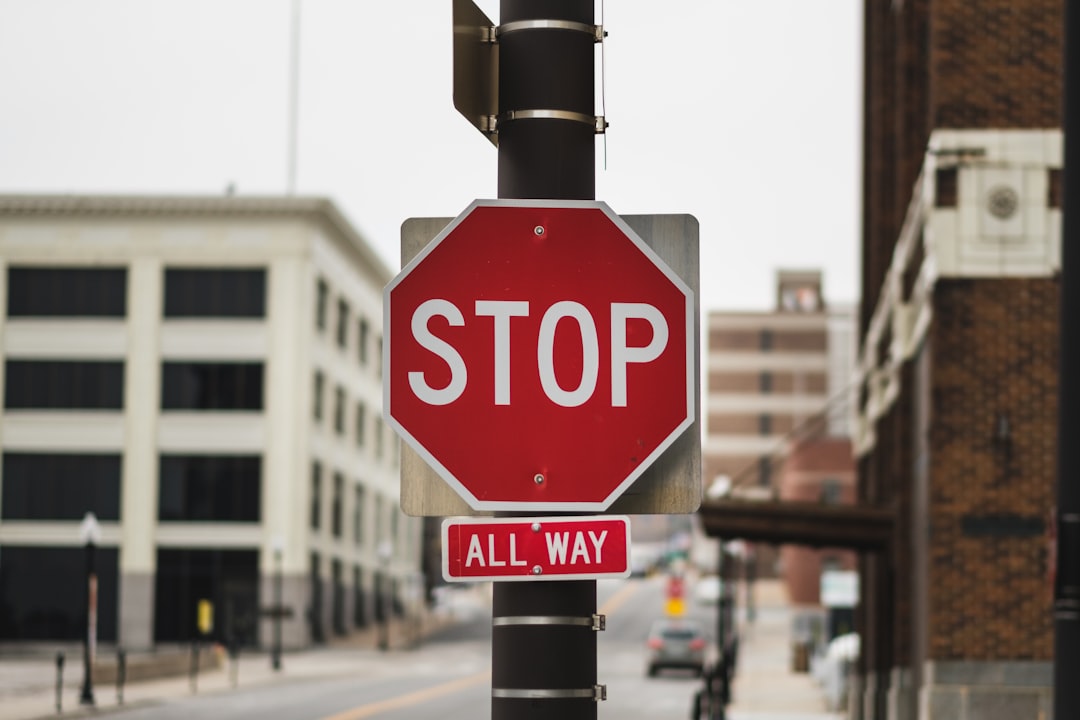
Lilly Stairs: I love that.
Amanda Lustig: I just nip it in the bud. I have Crohn's and I'm fine. I'm fine. Everything's fine.
Lilly Stairs: You're reversing the stigma when you're doing that too.
Amanda Lustig: It's an invisible disease for a reason. By looking at someone, 99.9% of the time, you can't look at someone and say, "You have Crohn's or colitis." You can't.
Lilly Stairs: Right.
Amanda Lustig: It's an inside disease. It's not a disease that affects organ systems that people are talking about all the time; not unless you talk about your bowel movement on the reg with anyone that passes by.
No, you'd never know, so I just nip that in the bud every time I meet someone.
Lilly Stairs: How is the response then from the people that you've talked to? Whether it be with your friends, people you're dating, or going on dates with? Is that the approach that you take?
Amanda Lustig: Yep. 100% of the time, because I never ... Honestly, in my dream world, which exists. It's a pretty great place.
I want people to think of me, not as having Crohn's disease and feeling pity for that.
I want them to think, "You know what? She had Crohn's disease and she's pretty rad. People with Crohn's are kind of cool."
Lilly Stairs: I love that.
Amanda Lustig: I wish I had Crohn's Disease like her.
Lilly Stairs: Sign me up for your dream world, by the way.

Amanda Lustig: Oh, yeah. It's great.
Lilly Stairs: I'll be the first one.
Amanda Lustig: Smokey-dough Mondays, Taco Tuesdays, Wacky Wednesdays, we wear fun ties, so come on board.
Lilly Stairs: Fabulous Fridays?
Amanda Lustig: Oh, yeah.
Lilly Stairs: That could be my day.
Amanda Lustig: We can work on Thursdays. Thursday is just so cliché. Anyway, but Saturday and Sunday I mean brunch. On with the brunch.
I just hate the stigma of Crohn's, and xolitis, and sick people. I never want to be known as, Amanda the Pity Party, because I don't.
Lilly Stairs: Do you feel like this disease has made you stronger?
Amanda Lustig: Yep. 100%. I actually had this conversation with my mom. Recently, within the past year or two. I remember exactly when I had it.
It was over the summer, in the spring, in June. I just narrowed that down. I remember asking her, "If you could have," ask your parents this question everybody, "If you could have a perfectly healthy child; if you could have given birth to me, and erased my Crohn's, would you?" My mommy's answer was like, "Absolutely not. Absolutely not. It's fine you have Crohn's disease." She said,
"You have become so much stronger, and you've become a leader, and you've grown, and it's unveiled a whole side of you that would not exist; 100% would not exist."
I think I wouldn't my Crohn's. My Crohn's, really I wouldn't. There's a very specific pre-Crohn's diagnosis, and post-diagnosis life, and I wouldn't trade it in for anything.
I've met really great people, and was introduced rapidly into the field of medicine, which I now call work.
Lilly Stairs: Yeah - do you feel like you are in this field now because of your diagnosis?
Amanda Lustig: This is a conversation I was just having last night. I coordinate a liver cancer clinic, which is why I know all about liver cirrhosis.
I, pre-Crohn's, was terrified of hospitals, needles, just ask any family member who's ever been to a doctor with me. I am terrified. Couldn't walk into a hospital. Patients on gurneys freaked me out.
Lilly Stairs: Yeah.
Amanda Lustig: Even at the age of 18, you had to push me into a blood-draw station. I couldn't handle it. Post-diagnosis, I've become a pin cushion.
Lilly Stairs: Injecting yourself?
Amanda Lustig: Oh, yeah. There's like, no ... Nothing is scary anymore. What I do now, I deal with very sick patients who need; it's a very complicated world, and I understand.
I know what it's like to have 18,000 doctors appointments, and, "Oh, I need labs again. Oh, I need imaging, again. Why do I need an MRI and a Cat scan? Don't they do the same thing?"
I get that. I totally get that.

Lilly Stairs: You have the facts and you're able to really leverage your experiences that you've had to support those patients that you work with.
Amanda Lustig: Yeah. I have a patient who's 40 and is complaining that they have to have a colonoscopy. I kind of get to say, "Listen, pal. You're 40. I was 20. I have one every year, so you can do one for me."
It's quite effective.
Lilly Stairs: I love it.
Amanda Lustig: I do it in a polite way, but I'm just like, "You're not doing too bad."
Lilly Stairs: Yep.
Amanda Lustig: I tell that to every fellow resident, medical student, that I get to, be like, "Don't forget that there is a patient on the other end of that medical record number."
You're trained in didactic to be like, "Patient is a 47 year old female, presenting with ..." and you're like, "No, no, no." Channel Patch Adams here. Give them a name. Remember, there's a human with kids they had to drop off at school, and a 101 year old mother they had to drop off at adult day care, who is taking 83 pills a day.
Like, this is hard. It's hard being a patient.
You gotta remember to treat them that way. So, I advocate a lot for my patients, who have to arrange all these aspects of their life and rearrange everything. They throw everything away to make themselves better.
You gotta remember, it's not easy.
Lilly Stairs: I love this, because you're such an empowered patient, who is now advocating for other patients.
It's like you've taken something that has been obviously, it was not an easy time in your life, to say the least. There will probably be more ups and downs, but you've used it to really make an impact. I think that's so powerful.
Amanda Lustig: I try.
Lilly Stairs: So kind of as we think about the future for people who are living with Crohn's, colitis, autoimmune diseases, what are your thoughts around the research that is happening?
Have you tried to be involved in research? What are your thoughts around that?
Amanda Lustig: I've given so much of my DNA to studies. I've given blood, spit, poop. I've given everything. Every time I'm asked for any study, I will do anything. I will do anything.
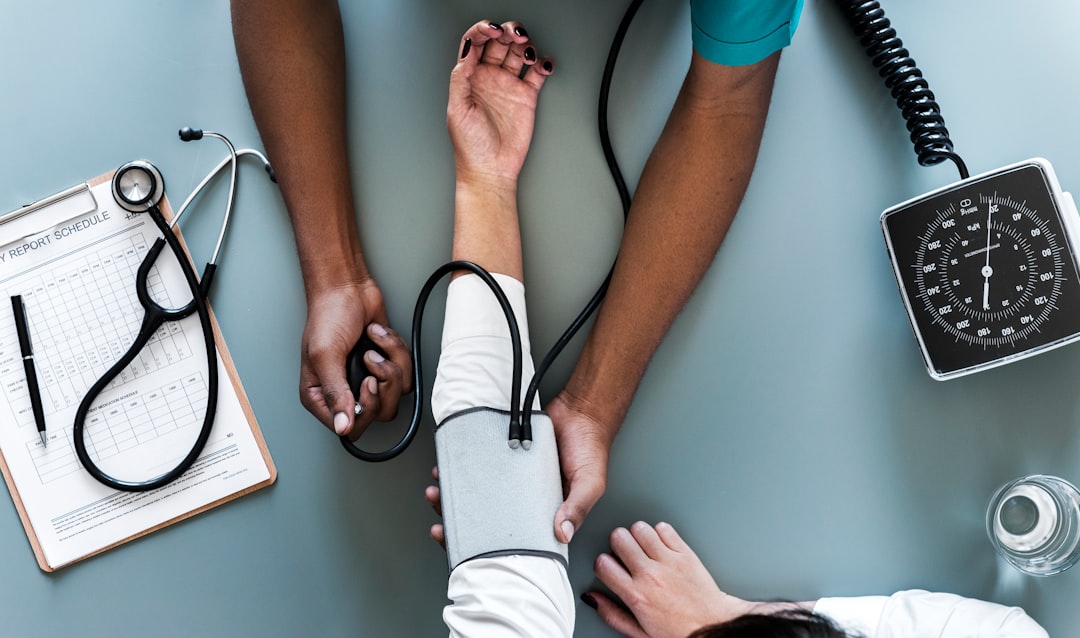
Amanda Lustig: It's nothing to me, like a vial of blood; it could even be a vial of spit, it's...
Anything to get us closer to finding a cure, which is, ultimately, what part of this research is doing, but a lot of it is also just finding better medications. Cures is a goal, but it's a lofty one, but a lot of it is just doing the microbiome research, and the geno-mapping, and finding where we can be better.
Anything I can do, I'm there.
Lilly Stairs: And you are. You're doing so much. I'm really blown away by all the ways you are making a difference.
From advocating with the Crohn's and Colitis Foundation, to making this your career path, and really not just showing up to work every day, but interfacing with all these physicians, and keep on saying, "Hey, treat patients like people."
Lilly Stairs: It's an honor that you came out to talk with us and I can't thank you enough for being here as our first official podcast interviewee. You were fabulous. I couldn't have asked for a better one.
Where do you want to go from here?
Amanda Lustig: Obviously, we gotta get some local celebs now.
Lilly Stairs: Yeah, let's work on it.
Amanda Lustig: Oh, yes.
Lilly Stairs: Well, thanks everybody for tuning in and you definitely will being seeing more of Amanda. At least, with us here at Clara for sure.


